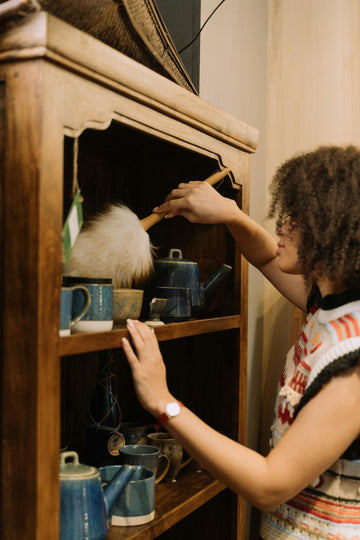
Anxiety has a funny way of showing up uninvited. And sometimes, it doesn't knock loudly or announce itself with racing thoughts and chest tightness. Instead, it slips into your daily routine through small, almost invisible behaviors.
You might think you're just being productive or keeping busy. But if you look closer, some of these patterns are actually your mind trying to manage stress in the only way it knows how.
The tricky part? We rarely connect the dots. That's why recognizing these subtle signs matters. Once you see them, you can start responding with more intention and care.
The Late Night Productivity Surge
Ever notice how you suddenly feel the urge to reorganize your closet at 10 pm? Or you start a new project right when you should be winding down for bed?
This isn't laziness catching up with you. It's often anxiety looking for an outlet. When your mind feels chaotic, controlling your physical environment can feel soothing. The problem is, it keeps you from actually resting.
If this sounds familiar, try setting a gentle boundary with yourself. For instance, after 9 pm, the reorganizing can wait. Your mental health needs that downtime more than your pantry needs alphabetizing.
 Checking Your Phone Constantly
Checking Your Phone Constantly
We all do it. Pick up the phone, scroll through nothing in particular, put it down, then pick it back up two minutes later.
Sometimes this is just a habit. However, most of the time, it's a way to avoid sitting with uncomfortable feelings. Anxiety makes stillness feel unbearable, so we reach for distractions such as Social media, news, messages, anything to fill the space.
The issue is that constant checking usually makes anxiety worse, not better. It keeps your nervous system on alert and prevents you from processing what you're actually feeling.
Try this instead: when you catch yourself reaching for your phone, pause, take three deep breaths. Ask yourself what you're really looking for. Sometimes awareness alone can break the cycle.
Over-Explaining Everything
Do you find yourself giving way too much context when someone asks a simple question? Or you apologize repeatedly even when you haven't done anything wrong?
This is anxiety trying to control how others perceive you. It's that fear of being misunderstood or judged, so you keep talking, keep clarifying, keep making sure everyone knows your intentions were good.
Here's the thing: most people aren't analyzing your words as much as you think they are. And the ones who matter will give you grace without needing a full explanation.
Practice shorter responses: Notice when you're about to launch into justification mode. You don't owe everyone a detailed account of your choices.
Saying Yes When You Mean No
People-pleasing is one of anxiety's favorite disguises. It feels safer to accommodate everyone else than risk disappointment or conflict.
So you agree to plans you don't want. You take on extra work when you're already overwhelmed. You shrink your own needs to make room for everyone else's comfort.
But this pattern doesn't actually protect you. It builds resentment and exhaustion. And it teaches people that your boundaries don't matter.
Start small. Practice saying, "Let me check my schedule and get back to you." That pause gives you space to decide what you actually want, not just what anxiety is pushing you toward.
Needing Everything Planned Out
Some people thrive on spontaneity. But when anxiety is running the show, uncertainty feels like danger.
You might find yourself making backup plans for your backup plans or getting stressed when something unexpected disrupts your carefully arranged day. It's not about being organized; it's about trying to eliminate any possibility of things going wrong.
The truth is, life will always have uncertainty. The goal isn't to control everything. It's to build confidence that you can handle things even when they don't go according to plan.
Try allowing one small unplanned moment each day maybe you should’nt decide what's for dinner until you're actually hungry. Tiny steps toward flexibility can ease the grip of anxious control.
The Endless Research Spiral
Got a mild headache? Three hours later, you've diagnosed yourself with twelve different conditions. Thinking about a big decision? You've read 47 articles and still feel no closer to an answer.
This is anxiety masquerading as preparation. It tells you that if you just gather enough information, you'll feel certain. But that moment of certainty never comes because anxiety always finds one more "what if" to explore.
At some point, more information stops being helpful. It just feeds the worry. Learning to sit with uncertainty, even when it's uncomfortable, is part of managing anxiety in healthy ways.
Set a limit. Give yourself 20 minutes to research, then step away. Trust that you have enough to move forward.
Moving Through With More Awareness
These behaviors aren't character flaws. They're coping strategies your mind developed to help you feel safe. The problem is, they often create more stress than they relieve.
Recognizing them is the first step. The next step is offering yourself some compassion. You're doing the best you can with the tools you have.
As you start noticing these patterns, you can slowly begin to choose different responses. Not all at once, just one small shift at a time. That's how real change happens.
Your mental health journey doesn't require perfection. It just requires paying attention and being willing to try something new when the old ways aren't working anymore.




